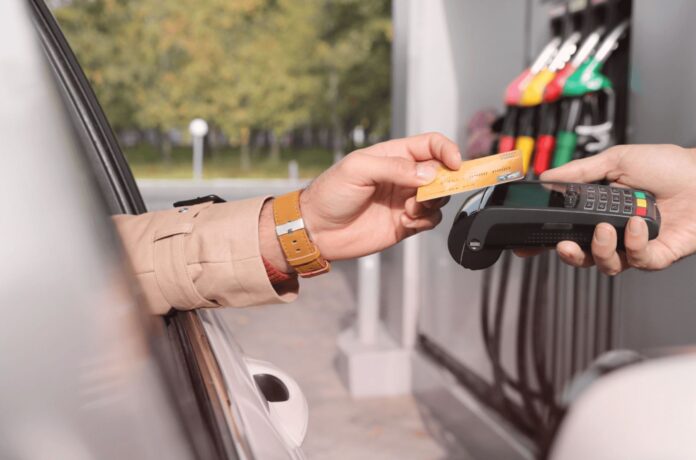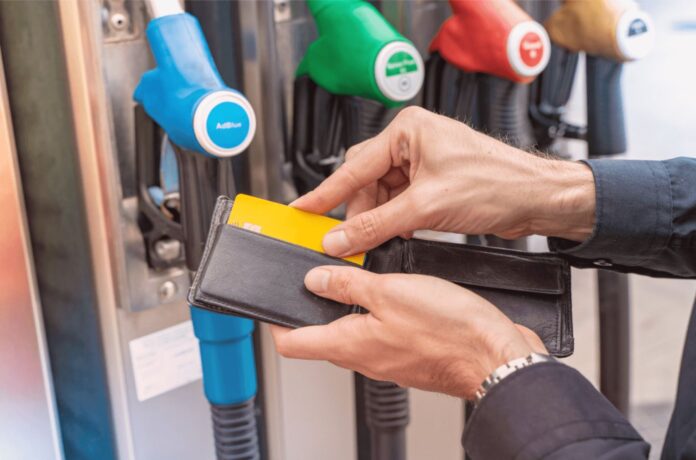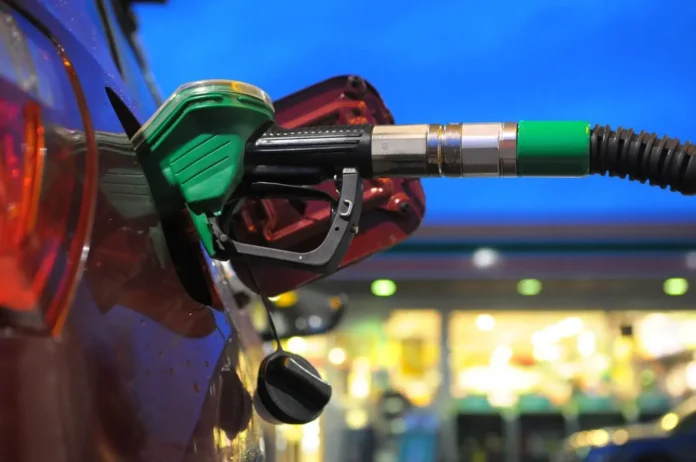
Whether you own an SME with a few vehicles or a huge organization with thousands of fleets on your plate — having a fuel card will always come in handy for you. And choosing the correct option becomes even more important for you. But, how do you do it?
Let’s find out more about it.
What is a Fuel Card?
Most fleet fuel cards function similarly to credit cards, but they are exclusively designed for fuel purchases. They offer a practical approach for:
- Managing your fleet business,
- Streamlining fuel expenses, and
- Preventing unauthorized or inefficient fuel usage
Just like a credit card, a fuel card has to be linked to an account. It, in turn, allows you to use it for payment when refilling. Prior to the introduction of fuel cards, fleet owners and managers had to rely on driver-submitted receipts, manually reconcile them, and file for IFTA.
Fuel cards, like the Fleetone or BP Plus, can seamlessly integrate with fleet management systems, automating the entire process. This ensures that all records are accurate, leaving no room for discrepancies. There’s no longer a need to meticulously track and reconcile fuel receipts, as all transactions are documented and categorized in a comprehensive tax statement.
Let’s see how it should be used!

1. Streamlining Financial Transactions
Fuel cards simplify financial transactions for businesses with fleets. They eliminate the need for employees to use personal funds for fuel, reducing administrative burden and ensuring smoother expense tracking. Moreover, they offer a consolidated statement, making it easier to reconcile expenses and gain a comprehensive overview of fuel costs.
2. Enhanced Security Measures
Fuel cards come equipped with security features that mitigate the risks associated with cash transactions. PIN protection and real-time monitoring help prevent unauthorized usage, ensuring that funds are allocated exclusively for intended purposes. This added layer of security fosters peace of mind for both fleet managers and business owners.
3. Optimised Fuel Management
One of the key advantages of fuel cards lies in their ability to provide detailed insights into fuel consumption. Advanced reporting features allow businesses to track spending patterns, identify inefficiencies, and implement targeted cost-saving measures.
This data-driven approach empowers organizations to make informed decisions about fuel procurement and consumption.
4. Negotiating Discounts and Rebates
Fuel cards often come with additional perks, such as negotiated discounts and cashback incentives. By leveraging these benefits, businesses can unlock significant savings on their fuel expenses. These partnerships between card providers and fuel suppliers can translate into substantial cost reductions over time.
5. Geographic Flexibility
In an era of expansive operations, fuel cards offer a distinct advantage in terms of geographic flexibility. They provide access to a vast network of affiliated fuel stations, ensuring that vehicles can refuel conveniently across different regions. This versatility eliminates the need for complex reimbursement processes and enhances operational efficiency.

How to Choose the Right Fuel Card for Your Business?
Choosing the right fuel card empowers you to oversee and monitor the fuel acquisitions made by each driver in your fleet, while also gathering valuable information on your collective fuel consumption.
This comprehensive insight into your fuel costs enables you to strategize and identify optimal methods for cost savings. Apart from this, you’ll also have to:
1. Assess Your Business Needs
Begin by evaluating your business’s specific requirements. For example, you should consider various factors, such as:
- The number of vehicles available in your fleet
- What type of fuel do they usually use
- The geographic areas they currently (or, in the future) operate in
Understanding these aspects will help narrow down your options and ensure you choose a card that aligns with your operational needs.
2. Review the Network Coverage
A widespread network of fuel stations is a key consideration. Opt for a card that provides access to a comprehensive network of fueling stations.
This ensures convenience for your drivers, regardless of their location, reducing downtime and increasing operational efficiency.
3. Evaluate Payment Terms and Credit Limits
Examine the payment terms and credit limits offered by the fuel card provider.
Favorable terms can provide your business with flexibility and liquidity, helping you manage cash flow effectively. Also, ensure the credit limits align with your monthly fuel expenditure to avoid any constraints.
4. Analyse Rewards and Discounts
Look for fuel cards that offer rewards or discounts on fuel purchases. These incentives can lead to substantial savings over time.
Some cards may also provide additional perks such as discounts on maintenance services or other related expenses, further enhancing your cost-saving potential.

5. Consider Reporting and Monitoring Tools
Efficient tracking and monitoring of fuel expenses are vital for controlling costs. Choose a fuel card that offers robust reporting tools.
These can provide valuable insights into your fuel consumption patterns, enabling you to identify areas for improvement and implement cost-saving measures.
6. Examine Security Features
Security is paramount when it comes to business expenses. Opt for a fuel card provider that offers robust security features, such as PIN protection and real-time transaction alerts. This helps safeguard against unauthorized or fraudulent use of the card.
7. Understand Fee Structures
Before you choose something, don’t forget to thoroughly review the fee structures associated with the fuel card. Some may charge annual fees, transaction fees, or other hidden costs.
Understanding these charges upfront allows you to accurately calculate the true cost of using the card and make an informed decision.
Bonus ─ Seek Customer Support and Service Levels
Reliable customer support is essential in case of any issues or inquiries. Hence, choose a fuel card provider known for their responsive and helpful customer service.
This ensures that you have access to assistance when needed, minimizing disruptions to your business operations.

Taking Your Business to a Brand New Level
You alone possess the knowledge to select the optimal fuel card for your fleet enterprise. Regardless of whether you oversee a single vehicle or a large fleet with numerous drivers, making the right choice in a fuel card can significantly impact factors such as convenience, management capabilities, and overall cost-effectiveness.
Good luck!











